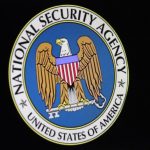Chinese citizens can be tracked in real time

A group of researchers have revealed that the Chinese government is collecting data on its citizens to an extent where their movements can even be tracked in real-time using their mobile devices.
This discovery was made by The Citizen Lab at the University of Toronto's Munk School of Global Affairs who specialize in studying the ways in which information technology affects both personal and human rights worldwide.
Before handing over power to Trump, Obama decides to EXPAND surveillance

With Donald Trump about to take over the reins from Barack Obama, privacy groups have expressed concern about what the incoming president will do with surveillance laws. But before that happens, President Obama is still a cause for concern. In the final days of his leadership, his administration has granted permission for the NSA to share the data it intercepts with no fewer than 16 other intelligence agencies.
While this will alarm many, what is particularly troubling is the fact that privacy protections are not applied until after this data has been shared between agencies. The changes in rules amount to a major relaxation of restrictions on NSA activities, meaning that a far greater number of officials will have access to unfiltered, uncensored data about innocent people around the world.
Europe: we need more details from Yahoo about scanning emails for US intelligence

The European Union is not happy with the explanation Yahoo has given for scanning user emails for US intelligence. There is concern about how such surveillance could impact upon not only privacy, but also business between the EU and US, and trust has to be built from scratch as Donald Trump becomes president.
Yahoo -- which is on the verge of being sold to Verizon -- is not signed up to the EU-U.S. Privacy Shield agreement that blocks the US from spying on European data. As such, the company has been acting on a previously-secret court order, gathering data for the NSA and FBI. Speaking with Reuters, the EU Justice Commissioner said she wants more information about what was gathered and why.
Snooper's charter attacked: Liberty mounts legal challenge to Investigatory Powers Act's 'assault on freedom'

The Investigatory Powers Act 2016 -- better known to many as the snooper's charter -- faced massive public criticism in the run-up to becoming law at the end of 2016 for the privacy-invading powers it affords the UK government to gather data about internet usage.
Towards the end of the year, the European Court of Justice ruled that the "general and indiscriminate retention" of internet data and communication is illegal, potentially threatening the Investigatory Powers Act. Now the human rights group Liberty is launching its own legal attack on the Act, asking for a High Court judicial review of the bulk surveillance powers that have been voted into law.
Facebook received 27 percent more government requests for information in 2016

Facebook has released its Global Government Requests Report for H1 2016, and it shows that there has been a significant increase in the number of government requests for account data.
Compared to the first half of 2015, Facebook received 27 percent more requests globally. Most of these 59,229 requests came from the US government, and more than half of them (56 percent) included a gagging order preventing Facebook from notifying the affected users.
'General and indiscriminate retention' of data ruled illegal, threatening Snooper's Charter
The UK government's Investigatory Powers Act 2016 (also known as the Snooper's Charter) has been dealt a blow after the European Court of Justice ruled that the "general and indiscriminate retention" of internet data and communication is illegal.
This is a serious setback for Theresa May's government which introduced legislations that not only requires ISPs to store customers' browsing history for a year, but also make this data available to a large number of agencies. The European court made the ruling following a legal challenge made by MPs David Davis and Tom Watson which gained the support of privacy groups.
FBI granted the right to hack the computers of any suspect running Tor, VPNs or anonymizing software

Starting today, the FBI will now have a much easier time hacking just about any computer it wants to. The use of VPNs and other anonymizing software such as Tor meant that it was previously difficult for the Feds to apply for the necessary warrant within the relevant jurisdiction.
Now the location doesn't matter. A change to Rule 41 of the Federal Rules of Criminal Procedure means that investigators can obtain a search warrant regardless of location. The expansion of FBI hacking powers comes after a failed Senate bid to block the changes to Rule 41, and there are fears that it is power that could be abused by Trump.
The Church Committee calls on Obama for leniency for Snowden if not a pardon

The calls for Edward Snowden to be pardoned by President Obama before Donald Trump takes office have been getting louder. But while many would like to see him given a get-out-of-jail-free card, there is a growing recognition that this simply might not happen.
The latest call in support of Snowden comes from the Church Committee (nothing to do with the church, rather the United States Senate Select Committee to Study Governmental Operations with Respect to Intelligence Activities, responsible for investigating illegal CIA activity in the 1970s). In a letter to the out-going president, 15 former members of the committee say that while it is open to debate whether Snowden's actions "merit a pardon, they surely do counsel for leniency".
The Snooper's Charter is now law, giving the UK some of the most extensive, invasive and draconian web surveillance powers in the world

The Investigatory Powers Act 2016, the Snooper's Charter, legalized spying: call it what you will, the UK now officially has some of the most extreme internet surveillance powers in the world. The Investigatory Powers Bill was today given royal assent, meaning it has now passed into law.
Unsurprisingly, there have been huge protests from privacy groups, and an online petition against the new powers has already gained more than 136,000 signatures. The Investigatory Powers Act 2016 not only requires ISPs to store records of their customers' browsing history, but also make this data available to dozens of government agencies, and even permits state hacking of phones and computers.
Obama is not going to pardon Edward Snowden -- and Trump certainly won't

Edward Snowden. A liberal darling, and simultaneously a figure of hate. His surveillance leaks are now legendary, and while the NSA whistle-blower hides away in Russia, there are calls for President Obama to issue a pardon before President Trump becomes a reality.
But Obama is having none of it. In an interview with Germany's Der Spiegel, the out-going president was asked bluntly about pardoning the former NSA contractor. His response was: "I can't pardon somebody who hasn't gone before a court and presented themselves". Obama, of course, could pardon Snowden if he wanted, regardless of whether he has faced trial, but he's not going to say that.
Legal mass surveillance: Investigatory Powers Bill could become law by the end of the year

The highly controversial Investigatory Powers Bill could be enshrined into UK law by the end of the year after it was passed by both houses of Parliament. Strongly opposed by privacy campaigners, the bill -- dubbed the Snooper's Charter -- will mean a full record of every UK internet users' browsing history is accessible by the government.
All that remains is for the bill to receive royal assent -- essentially a formality -- and it will then become the Investigatory Powers Act. It means the UK will have one of the most wide-ranging, all-encompassing, and privacy-invading mass surveillance programs in the world.
Android backdoor found sending personal information from US users to China

Mobile security firm Kryptowire has discovered a backdoor in several Android smartphones sold in the US. The company says that the firmware collected personal data about users without consent, and sent this private information on to Chinese firm Shanghai Adups Technology Company.
Included in the reams of personal data shared to a third party server were the full text of SMS, call histories, and unique device identifiers. In addition to this, an OTA (over the air) update to firmware allowed for the non-consensual installation of apps, user location tracking and keyword monitoring.
MI5, MI6 and GCHQ secretly and illegally collected data about British citizens for over a decade

The surveillance activities of the NSA in the US, along with MI5, MI6 and GCHQ in the UK, have been known about for some time now, largely thanks to Edward Snowden. Now the Investigatory Powers Tribunal has ruled that for more than a decade, huge amounts of data were collected without adequate oversight, breaking privacy laws.
The tribunal also said that some instances of data collection failed to comply with the European Convention on Human Rights (ECHR). Privacy International, the group who brought the complaint against the spy agencies, said that this is a "highly significant judgment".
Google's latest transparency report reveals the futility of transparency reports -- and increased data requests

As has become the norm for big tech companies these days, Google has just published its latest transparency report. The report reveals -- in very, very broad strokes -- the number of requests for user data the company has received from the US government.
In a groundbreaking revelation (and -- please -- note the sarcasm) the lifting of a gag restriction by the FBI means Google is now able to report about the number of National Security Letters it received in Q2 2015. Sort of. "We have updated the range of NSLs received in that period [...] from 0-499 to 1-499." Or, to paraphrase: "there definitely weren't none".
Yahoo secretly scanned emails for the NSA and FBI -- Apple, Google and Microsoft did not

Yahoo has been having something of a rough time of late, and things are not getting any easier. It has emerged that the company created a custom tool to search customers' emails for specific terms as directed by the NSA and FBI.
Reuters shares the story of two former Yahoo employees who say the company complied with a government directive to search through all incoming emails. In response to the revelations, Apple, Google and Microsoft have all denied engaging in similar activity.
Recent Headlines
Most Commented Stories
BetaNews, your source for breaking tech news, reviews, and in-depth reporting since 1998.
Regional iGaming Content
© 1998-2025 BetaNews, Inc. All Rights Reserved. About Us - Privacy Policy - Cookie Policy - Sitemap.